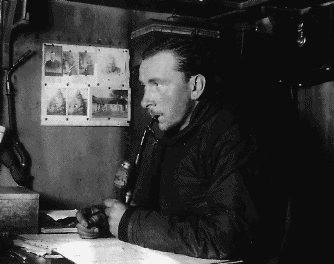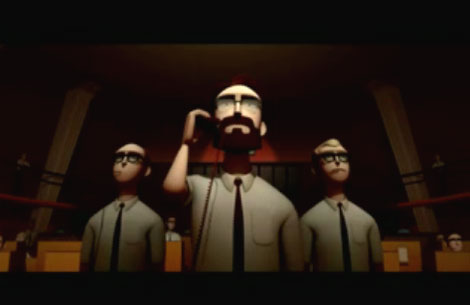new posts in all blogs
Viewing: Blog Posts Tagged with: Polar Exploration Titles, Most Recent at Top [Help]
Results 1 - 7 of 7
How to use this Page
You are viewing the most recent posts tagged with the words: Polar Exploration Titles in the JacketFlap blog reader. What is a tag? Think of a tag as a keyword or category label. Tags can both help you find posts on JacketFlap.com as well as provide an easy way for you to "remember" and classify posts for later recall. Try adding a tag yourself by clicking "Add a tag" below a post's header. Scroll down through the list of Recent Posts in the left column and click on a post title that sounds interesting. You can view all posts from a specific blog by clicking the Blog name in the right column, or you can click a 'More Posts from this Blog' link in any individual post.

One hundred years ago this week the ship Endurance was destroyed by the ice and had to be abandoned by South Pole explorer Ernest Shackleton and his crew. It seems the perfect time to celebrate Shackleton and share one of my favorite quotes of all time, which has been attributed to his fellow explorer, Sir Raymond Priestly:
“For scientific leadership, give me Scott; for swift and efficient travel, Amundsen; but when you are in a hopeless situation, when there seems to be no way out, get on your knees and pray for Shackleton.”
A very similar version of the quote appears in Apsley Cherry-Garrard’s book The Worst Journey of the World (which is an outstanding book on exploration that I highly recommend):
For a joint scientific and geographical piece of organization, give me Scott; for a Winter Journey, Wilson; for a dash to the Pole and nothing else, Amundsen: and if I am in the devil of a hole and want to get out of it, give me Shackleton every time … ”
Bottom line: if the devil is determined to get you than it is the strength of Shackleton you pray to have at your back; Shackleton, Shackleton, Shackleton.
[Post title from Shackleton, of course.]

From Gizmodo:
Three U.S. Navy icebreakers pushing an iceberg out to sea to clear a channel leading to McMurdo Station, Antarctica, 29th December 1965. The ships are, left to right: the USS Burton, USS Atka and USS Glacier.
I am endlessly fascinated by ships and ice - no idea why but it explains why I loved that Polar Literature course in college so much. (Follow the link for more wicked cool pics!)


From Smithsonian, Alfred Wegener and the theory of Continental Drift:
We like to imagine that knowledge advances fact upon dispassionate fact to reveal precise and irrefutable truths. But there is hardly a better example of just how messy and emotional science can be than Wegener's discovery of the vast, turbulent forces moving within the earth's crust. As often happens when confronted with difficult new ideas, the establishment joined ranks and tore holes in his theories, mocked his evidence and maligned his character. It might have been the end of a lesser man, but as with the vicious battles over topics ranging from Darwinian evolution to climate change, the conflict ultimately worked to the benefit of scientific truth.
Wegener's story is horribly forgotten but shouldn't be. He's a amazing man (he came up with the idea of the "supercontinent" and gave it the name Pangea) and a true scientific hero. (If you're interested in a book about him, I reviewed Ending in Ice for Booklist several years ago and can recommend that one!) (But be aware, Wegener is yet another tragic polar story - although his death seems quite fitting almost in light of his lifelong research.)
[Post pic via UC Berkeley, title from Smithsonian Mag.]


In the annals of polar exploration there are those who got there first, those who didn't get there but died in spectacular fashion and then there is Shackleton. He is, to many (me included) the truly great one. He is the explorer who turned back to save his men and the one who led the most epic polar rescue of all time. He is not the stuff of legend, he is legend. Consider this famous quote from Sir Raymond Priestly, explorer with both Shackleton and Robert Scott:
"Scott for scientific method, Amundsen for speed and efficiency but when disaster strikes and all hope is gone, get down on your knees and pray for Shackleton."
He will live forever in the annals of exploration history, without a doubt. But what Kari Herbert does in her upcoming book, POLAR WIVES is give equal measure to his wife, Emily (along with several other wives who I'll blog about later). What I found so interesting about Emily is that on the surface, as Herbert notes, she was seen as the "epitome of the long-suffering polar wife surrendering her ambitions for those of her husband on his great undertaking; bound to a brilliant but restless dreamer, who yearned for home when he was away but was often distant when he returned." She is not someone who seems to be worthy of a biography separate from her husband. And yet Herbert makes clear that Emily was much more than long-suffering and in fact was a force to be reckoned with. She believed not just in him and what he hoped to accomplish but she believed in a fulfilling life for herself as well. She did not want to live through him, she wanted the family happiness that it was entirely reasonable for her to expect. She worked very hard for this at holding everything together. She did, as the post quotes shows so clear, the "small things" the necessary things, the things that always need doing. She just didn't plan on having to do so much alone, because he was either gone exploring or celebrating his exploration, or finding solace in the company of others that he wasn't exploring yet again.
He loved her. She loved him. But that's never the point of the story, is it?
In the years after Ernest's death she made sure to see that he was not lost in the negative comments of others or the achievements of others, she stayed true to him in the way that his widow should. And yet, and yet....reading Herbert's chapters on Emily you wonder how the two of them would have excelled in a time where she could have had more power; where the strength of her personality would have not have had to be dimmer. He had to live then to be the great explorer he was but she would have been something in a different time.
Emily Shackleton is worthy of her own book, her own appreciation; we should count ourselves lucky that Kari Herbert shines the spotlight on her as much as she does here.
[Post pic from the James Caird Society. Quote from Emily Shackleton.]

 I am working on my review of Captivity by Deborah Noyes (due out in June) and yet again feel myself pulled into the very real twisted, tormented and completely complicated love affair of Margaret Fox (founder of the American Spiritualist movement with her sisters) and Elisha Kent Kane (famous polar explorer). Captivity includes two narratives - one of Margaret Fox and how she gained fame talking to the dead (sort of) and the fictional Clara, a recluse who has been in hiding for years after the demise of a doomed love affair. The two women become friends and while I can't tell you much about Clara (because that would ruin a gorgeous story) I can tell write about Margaret and Elisha because their story is already infamous in the annals of the tragic and the doomed (and the ever classic refrain "He done me wrong".)
I am working on my review of Captivity by Deborah Noyes (due out in June) and yet again feel myself pulled into the very real twisted, tormented and completely complicated love affair of Margaret Fox (founder of the American Spiritualist movement with her sisters) and Elisha Kent Kane (famous polar explorer). Captivity includes two narratives - one of Margaret Fox and how she gained fame talking to the dead (sort of) and the fictional Clara, a recluse who has been in hiding for years after the demise of a doomed love affair. The two women become friends and while I can't tell you much about Clara (because that would ruin a gorgeous story) I can tell write about Margaret and Elisha because their story is already infamous in the annals of the tragic and the doomed (and the ever classic refrain "He done me wrong".)
 Noyes has all the historical facts intact: Maggie was from a small town who got caught up in a lark she could not control. Alternately embracing her fame and hating it, she attracted Elisha's attention for reasons she never understood (and he could not articulate). Elisha saw right through her - he knew the sisters were showmen first and foremost - but he could not stay away. He kept telling Maggie she was wrong and bad and a fraud, but still he kept on coming back.
Noyes has all the historical facts intact: Maggie was from a small town who got caught up in a lark she could not control. Alternately embracing her fame and hating it, she attracted Elisha's attention for reasons she never understood (and he could not articulate). Elisha saw right through her - he knew the sisters were showmen first and foremost - but he could not stay away. He kept telling Maggie she was wrong and bad and a fraud, but still he kept on coming back.
The facts get murky as they near the departure of Elisha's third (and most famous) Arctic trip in 1853. From the letters he wrote and what he told his friends it is clear he was very in love with Maggie, but determined she change (to be worthy of him and his very wealthy family). He sent her off to take lessons and get smarter but big surprise, Maggie was bored out of her ever loving mind and ditched the whole set up. But according to her, Elisha gave her a ring and they took vows before he left for the Arctic. But when he got back he was sick and busy and his family was so not interested in the whole association with "show people" so it never got to be officially recognized. Whether or not the marriage was real only Marggie and Elisha ever knew for sure. (Maggie's Wikipedia page says they were married; Elisha's does not even mention her.) And then he died in 1857 and Maggie fought tooth and nail to be recognized as his wife and it didn't work. And she had a miserable life and died penniless even though she was the love (if not wife) of one of the most famous American heroes of the 19th century. (His funeral was second only to Lincoln's in pomp, circumstance and attendance.)
I swear it is about the saddest love story ever - for Maggie. I think Elisha was a complete ass and she would have been way better off if she never met him. Poor girl.
What Deborah Noyes does with all this real life drama is give us what might have been Maggie's side of the story. And she shows that while he kept dangling respectability in front of her, he was also controlling and would have taken all of her freedom away because that was pretty much how it was for women in 1850 and it was what Elisha wanted to do. Noyes suggests that Maggie knew that - and she knew that while Elisha might have loved her and been all that and a bag of chips when it came to explorers, he also was a control freak who would never let her be who she wanted to be. Not that Maggie knew for sure who that was but she at least wanted to get out of her podunk town and was willing to take a shot at anything to accomplish it. (Can't blame her for that - the life of a farmer's daughter back then was pretty darn grim.) Elisha was going to take all her hard fought freedom away and in exchange he spent all of his time telling her that she wasn't good enough for him.
Maggie really deserved b

Many thanks to Laurent for sending me this animated short. After watching it, I couldn’t believe that it’s a student film. It looks like something straight out of PIXAR. Laurent mentioned that films, cartoons and design from the 1960s were the inspiration for the project. Excellent animation and great use of James Bond soundtracks to set the atmosphere.
View Zoudov on Youtube or check it out on the official Zoudov website.
Have a great weekend everyone!
Speaking of which, after getting a tip from my friend Wes I decided to rent “King of Kong”. Thats on the playlist for the weekend. Anyone else seen this?
animation,
contemporary,
film,
France,
illustrationShare This
©2007 -Visit us at Grain Edit.com for more goodies. 

1960s penguin book covers
Things magazine..wheew sweet mother! They have put together a kick butt gallery of penguin book covers. Includes beautiful covers overseen by Jan Tschichold as well as the late typographer Hans Schmoller. My favorite years are between 1961-1972 when Italian art director Germano Facetti was in charge of design. Facetti enlisted Polish graphic designer Romek Marber to redesign the look of the Penguin series and the rest is history.
Side note: Watched Jules Dassin’s Brute force last night. Great Flick. I also recommend Riffifi which was directed by Dassin as well.
(via Ace jet 170)
book covers,
BOOKS,
Gallery,
graphic design,
Mid century,
modern,
penguinShare This
©2007 -Visit us at Grain Edit.com for more goodies. 










